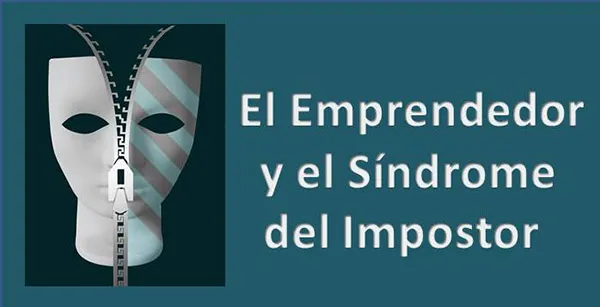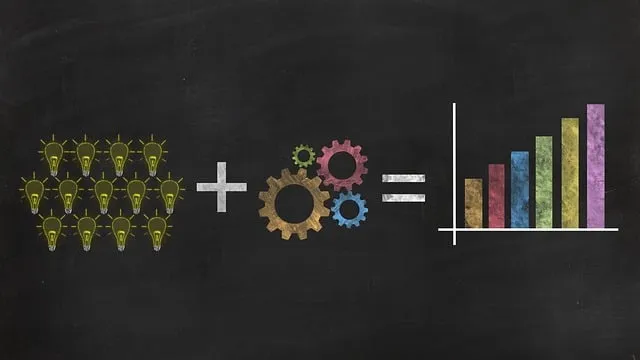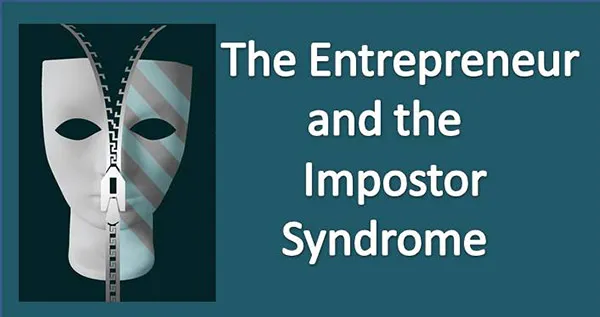
¿Cómo asumes tus logros?, ¿Crees que los has alcanzado por el esfuerzo realizado o más bien piensas y sientes que ha sido una cuestión de suerte?
Te lo pregunto porque hace unos días en el podcast “Encuentros de bienestar” discutíamos el libro: “La Buena Suerte” de Alex Rovira y Frenando Trías, en cuál hacen una gran distinción entre lo que llamamos “suerte” y lo que ellos llaman “La Buena Suerte”.
Después del programa me quedé pensando en esas personas que conocemos, que las percibimos y son exitosas en lo que hacen, que las admiramos y reconocemos por sus habilidades, sin embargo, cuando hablas con ellas, al profundizar cómo han llegado a alcanzar sus metas atribuyen sus logros a la suerte, minimizando de esta manera todo el esfuerzo que han realizado para llegar donde están.
Este sentimiento es lo que en psicología se conoce como el síndrome del impostor, el cual es definido como un trastorno donde la persona siente que nunca esta a la altura, que pudo haber dado más, que no es merecedor del reconocimiento, por lo que asocia su éxito a un golpe de suerte, al azar, y considerar que unas circunstancias externas a él hicieron posible el logro alcanzado.
¿Cómo emprendedor has sentido el síndrome del impostor?

Según la doctora Valerie Young, quien ha realizado estudios sobre el tema, afirma que siete de cada diez personas han “padecido” el síndrome del impostor, por lo menos alguna vez en su vida. Ver.
Es decir, que no es de extrañar que seamos una de esas siete personas que en un momento determinado sintamos que ese logro alcanzado no nos corresponde. Cuando este malestar es temporal, cuando se produce en una determinada ocasión, digamos que no hay problema, que no pasa nada. El asunto es preocupante cuando este malestar es permanente, cuando la insatisfacción es constante y el miedo a que “la suerte se vaya” detiene nuestro accionar.
Como emprendedores cada día vamos asumiendo retos, cubrimos satisfactoriamente objetivos que nos planteamos para llegar a una meta que vislumbramos, en otras palabras vamos abonando el terreno para el logro. Sí, cuando obtenemos el resultado esperado, nos sentimos que no dimos el máximo, que no es tan perfecto como esperábamos y en consecuencia no podemos disfrutar plenamente de esa meta alcanzada, pues es hora de revisarnos porque nos estamos sintiendo impostores sin serlo.
Pero no es solo la insatisfacción producto de ese afán perfeccionista que a veces nos persigue sin comprender que la perfección, como tal, no existe, sino que es un criterio subjetivo del cual nos hemos adueñado y que desde ella no nos damos tregua; también se mezcla con otras características como la falta de confianza en uno mismo al no reconocer y creer en nuestras competencias y habilidades considerando nos falta algo más o ese miedo “irracional” a errar porque no tenemos lo que se requiere para realizar la acción aunque en la realidad si poseemos lo que necesitamos.
Lo cierto es que el síndrome del impostor debilita la confianza en uno mismo, creando inseguridad no solo en lo que hacemos sino también en lo que somos, llevándonos a un extremo de que aún, haciendo las cosas bien, muy bien o excelentes, no las disfrutemos porque dudamos de nuestra creatividad, inteligencia, habilidades, competencias, entre tantos otros aspectos.
Estar en esta burbuja donde nos sentimos impostores va formando una cadena de limitantes que posiblemente no nos permitan avanzar en el desarrollo de nuestro ser emprendedor, por lo que se hace conveniente revisarnos y trabajar en ello para superar esta “debilidad” de carácter. Algunas de mis recomendaciones al respecto son:

-Acepta que lo perfecto no existe, que de alguna manera todo es inacabado, lo que existe es tu intención consciente de dar lo mejor de ti en cada acción.
-Comprender que los logros son producto de la sumatoria de nuestras acciones, muy pocas cosas llegan a nuestras vidas por azar, la mayoría son el resultado de la constancia, dedicación, esfuerzo y afecto con el que las realizamos.
-Contrasta pensamiento con realidad. El pensamiento es el que nos dice y nos hace sentir como un fraude, un impostor, así que haz lista de tus logros, de las acciones que has realizado para alcanzarlos y cada vez que llegue ese pensamiento “aguafiestas” y saboteador muéstrale tu camino andado, de tal manera que él entienda que estas allí, en ese sitial de éxito, por todo lo que eres y haces. El pensamiento es terco, pero con constancia logra entrar en razón.
-Reconoce y disfruta tus logros, grandes y pequeños, ese es uno de nuestros grandes motivadores en el camino del emprendimiento.

In English

How do you assume your achievements, do you think you have reached them because of the effort made or rather you think and feel that it has been a matter of luck?
I ask you this because a few days ago in the podcast "Encuentros de bienestar" we discussed the book: "La Buena Suerte" by Alex Rovira and Frenando Trías, in which they make a great distinction between what we call "luck" and what they call "La Buena Suerte".
After the program I kept thinking about those people that we know, that we perceive and are successful in what they do, that we admire and recognize for their abilities, however, when you talk to them, when you go deeper into how they have reached their goals they attribute their achievements to luck, thus minimizing all the effort they have made to get where they are.
This feeling is what in psychology is known as the impostor syndrome, which is defined as a disorder where the person feels that he/she is never at the height, that he/she could have given more, that he/she is not worthy of recognition, so he/she associates his/her success to a stroke of luck, to chance, and considers that circumstances external to him/her made the achievement possible.
As an entrepreneur, have you ever felt the impostor syndrome?

Dr. Valerie Young, who has conducted studies on the subject, states that seven out of ten people have "suffered" the impostor syndrome, at least once in their lives. See.
In other words, it is not surprising that we are one of those seven people who, at a given moment, feel that the achievement we have reached does not correspond to us. When this discomfort is temporary, when it occurs on a specific occasion, let's say that there is no problem, that nothing happens. The matter is worrisome when this discomfort is permanent, when dissatisfaction is constant and the fear that "luck will go away" stops our actions.
As entrepreneurs, every day we take on challenges, we satisfactorily meet the objectives we set ourselves to reach a goal we envision, in other words, we are paving the way for achievement. Yes, when we get the expected result, we feel that we did not give the maximum, that it is not as perfect as we expected and consequently we cannot fully enjoy that goal achieved, it is time to review ourselves because we are feeling like impostors without being so.
But it is not only the dissatisfaction product of that perfectionist eagerness that sometimes pursues us without understanding that perfection, as such, does not exist, but that it is a subjective criterion of which we have taken possession and that from it we do not give us truce; it is also mixed with other characteristics such as lack of confidence in oneself by not recognizing and believing in our skills and abilities considering we lack something else or that "irrational" fear to fail because we do not have what is required to perform the action although in reality we do have what we need.
The truth is that the impostor syndrome weakens self-confidence, creating insecurity not only in what we do but also in who we are, taking us to an extreme that even if we do things well, very well or excellent, we do not enjoy them because we doubt our creativity, intelligence, skills, competencies, among many other aspects.
Being in this bubble where we feel like impostors is forming a chain of limitations that may not allow us to advance in the development of our entrepreneurial being, so it is convenient to review ourselves and work on it to overcome this "weakness" of character. Some of my recommendations in this regard are:

-Accept that perfection does not exist, that somehow everything is unfinished, what exists is your conscious intention to give the best of you in every action.
-Understand that achievements are the result of the sum of our actions, very few things come into our lives by chance, most are the result of perseverance, dedication, effort and affection with which we perform them.
-Contrast thought with reality. The thought is the one that tells us and makes us feel like a fraud, an imposter, so make a list of your achievements, of the actions you have done to achieve them and every time that "spoilsport" and saboteur thought arrives, show him your path, so that he understands that you are there, in that place of success, for all that you are and do. The thought is stubborn, but with perseverance it manages to come to its senses.
-Recognize and enjoy your achievements, big and small, that is one of our greatest motivators in the path of entrepreneurship.

Translated with www.DeepL.com/Translator (free version)
Fuente de imágenes. Portada - 1 - 2



MIS REDES SOCIALES





Entra y Vota
@la-colmena: https://vote.hive.uno/@la-colmena
@aliento: https://vote.hive.uno/@aliento
@cervantes: https://peakd.com/me/witnesses


Be Entrepreneur



